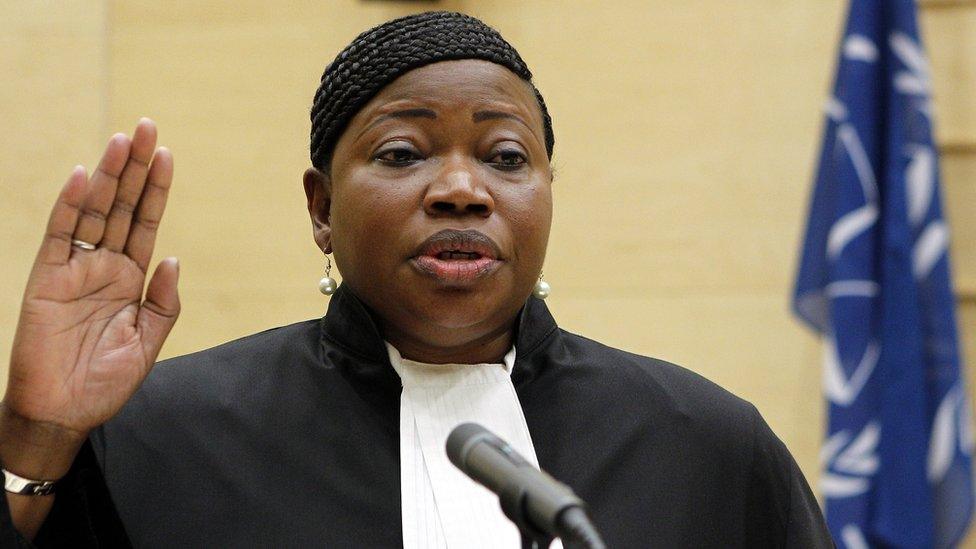The future of international justice
- Published
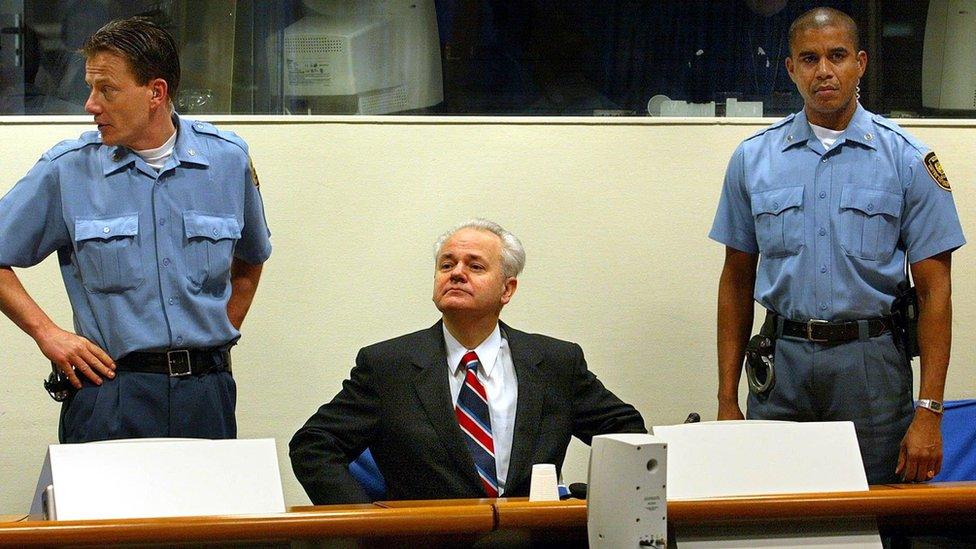
The International Criminal Tribunal for the former Yugoslavia is shutting down at the end of 2017, having brought to justice some of those who committed war crimes in the former Yugoslavia in the 1990s.
Since then, war crimes have been committed in many other parts of the world, in Iraq, Syria and elsewhere. Is there evidence that the perpetrators would face a trial at an international court?
War criminals have some reasons to be scared of international justice, but not enough reasons to make them very afraid.
The effort to establish a system of global justice which could deprive war criminals of any hope of escape is a vivid illustration of what can be achieved by nation states acting together. But equally, the refusal of some of the most powerful nations to participate, notably China and the United States, shows how such effort can be hugely undermined.
I missed the trials at Nuremberg by quite a few years but in April 1995, as I was taking my place with the press at The Hague court to report the first case in front of the the International Criminal Tribunal for the former Yugoslavia,, external I sensed powerful echoes from 1945 of the Nuremberg process and that historic demonstration of a will to pursue war criminals under international law.
One eminent British reporter of the Bosnian war complained that the first accused, Bosnian Serb Dusko Tadic, was a mere foot soldier of genocide: a prison guard, not an army commander or a political leader. I felt that missed the point. True, this was a small trial, of a single individual. True, the Nuremberg precedent was now being run in reverse.
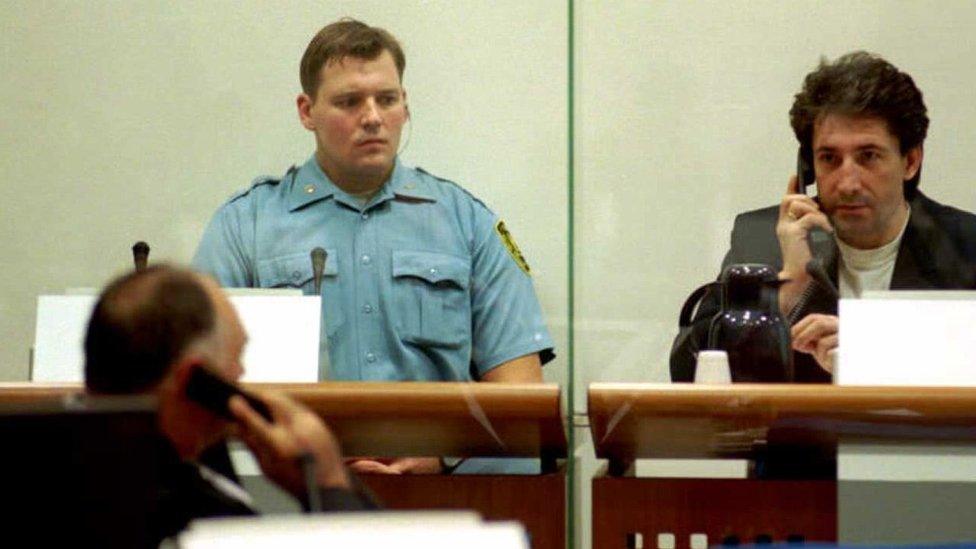
Bosnian Serb Dusko Tadic (r) talks to his lawyer (l) in 1995 at the war crimes tribunal in The Hague
But after the conviction of Tadic, the tribunal steadily increased its reach, up to the very highest levels of culpability including to former Yugoslav President Slobodan Milosevic himself.
The court demonstrated that - at least in the cases it heard - impunity had been overcome.
So, now that the doors of the Yugoslav tribunal have finally closed, more than 20 years after that first prosecution, what are the prospects for following its example by demonstrating a lasting and far wider commitment to international criminal justice?
Target Africa?
Well, there is now the first International Criminal Court (ICC)., external Creating it was slow work, because it required agreement among a substantial number of states.
The treaty to establish the court was adopted by 120 states back in July 1998. It then took four years to achieve ratification by half that number of countries in 2002 and thus legitimise the court.
Since then, the achievement has been very limited.
The court says its judges have issued 31 arrest warrants. So far, 25 cases have been before the court and the judges have issued verdicts in six of those cases, resulting in nine people being convicted and one acquitted.
One of the most common accusations levelled against the ICC is that it might be better renamed the African Criminal Court: a weapon used largely by former colonial powers from Europe to punish a single continent and ignore other conflicts.
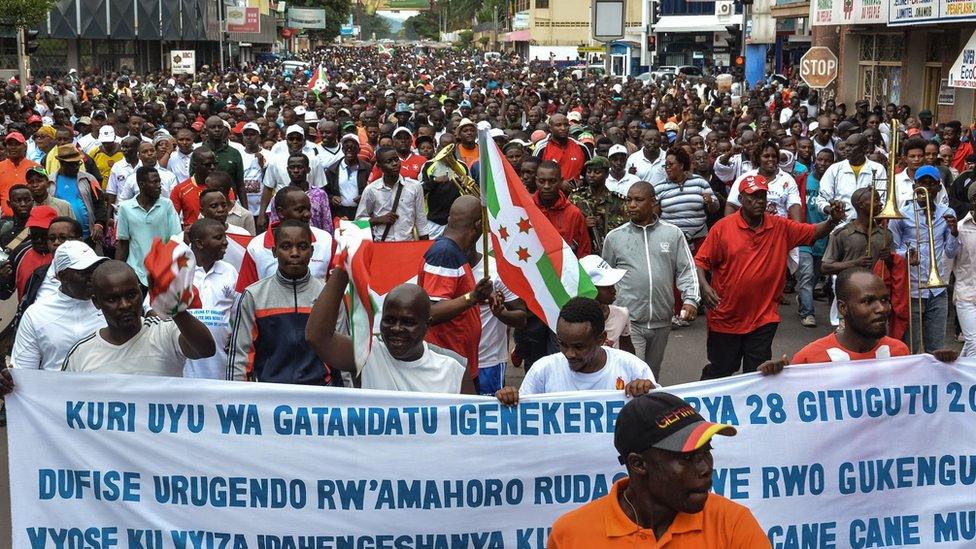
Burundians take to the streets to celebrate Burundi's withdrawal from the ICC in October 2017
None of this is to suggest that there haven't been shocking genocides and terrible crimes against humanity in Africa, but the continent does have a reasonable record of active participation in, and support for, the ICC. Of 123 countries who are parties to the International Criminal Court, 33 are African states.
But elsewhere in the world there are glaring omissions from the list committed to the ICC, including three of the five permanent members of the UN Security Council: China, Russia and the United States. Oh, and Iraq isn't a participant, either.
Why no Iraq prosecutions?
When you remember that the court can investigate alleged crimes committed since the middle of 2002, the war in Iraq stands out for its startling absence from the ICC case list. The original US-led invasion of Iraq was launched on 20 March 2003 after all. The war dragged on for eight years, and the violence still hasn't ceased.
But the United States has never supported the court. Starting with Bill Clinton, every president has refused to countenance the idea that a US citizen, still less an American soldier, could ever be put before the court.
One of many arguments the US makes for its boycott is that Americans would be targeted mischievously for political purposes. Another is that no court outside the American judicial system can occupy a higher place than its own tribunals.
All this helps shine a bit of a spotlight on one preliminary investigation which is being pursued by the ICC into allegations against soldiers in Iraq from the United Kingdom, America's foremost ally.
In December 2017, the chief prosecutor at the International Criminal Court said there was a "reasonable basis" to believe British troops had committed war crimes against Iraqi detainees.
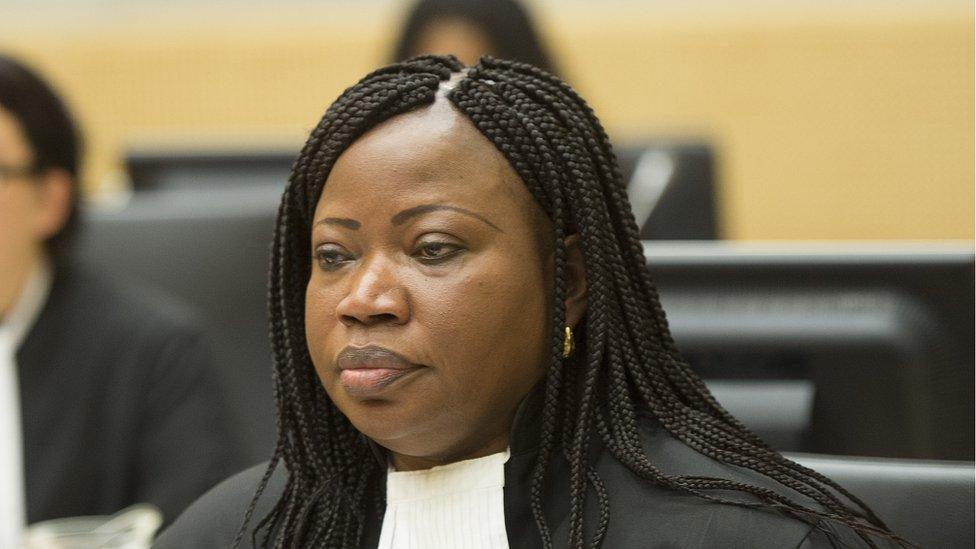
ICC Chief Prosecutor Fatou Bensouda said British troops might have committed war crimes in Iraq
Consider also the fact that Britain's Ministry of Defence has been found by the High Court in London to be in breach of the Geneva Conventions and ordered to pay damages of tens of thousands of pounds to four Iraqi citizens for their ill-treatment and unlawful detention by British armed forces during the Iraq War. That must make the possibility of the ICC actively pursuing British soldiers at some point in the future more likely.
While all that might seem to be just, it does raise many other questions. How can the ICC have global credibility when major powers including the United States simply refuse to have anything to do with it?
The Syria question
Will the ultimate test of the ICC be its ability to investigate and then prosecute successfully some of the many hundreds, possibly thousands, of people who must have been involved in the systematic crimes against humanity committed during the war still going on in Syria?
The gathering of evidence is said to be happening on a vast scale. Much of it is very deliberately being kept secret, partly to prevent efforts to discredit it, or to kill witnesses or protect the guilty, including those at the very highest levels in Syria.
Is it likely those most culpable will eventually be brought to The Hague?
It doesn't look that likely. Russia, another refusenik which wants nothing to do with the ICC, would have to consent to a peace in Syria without extracting some guarantee of amnesty covering its principal ally, President Bashar al-Assad himself.
It is certainly possible to believe that the ICC is better than nothing, that just because the court's reach and effectiveness is severely limited, that doesn't nullify its achievements so far.
But it is hard to make the case that the pursuit of the most terrible crimes is being conducted as a universal and equitable search for justice, truth and reconciliation.
- Published3 November 2017
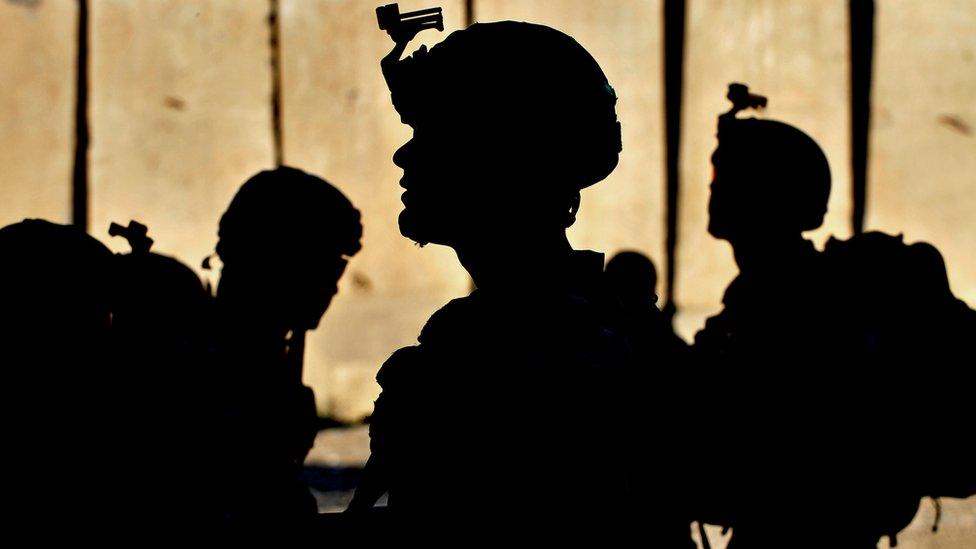
- Published16 November 2016
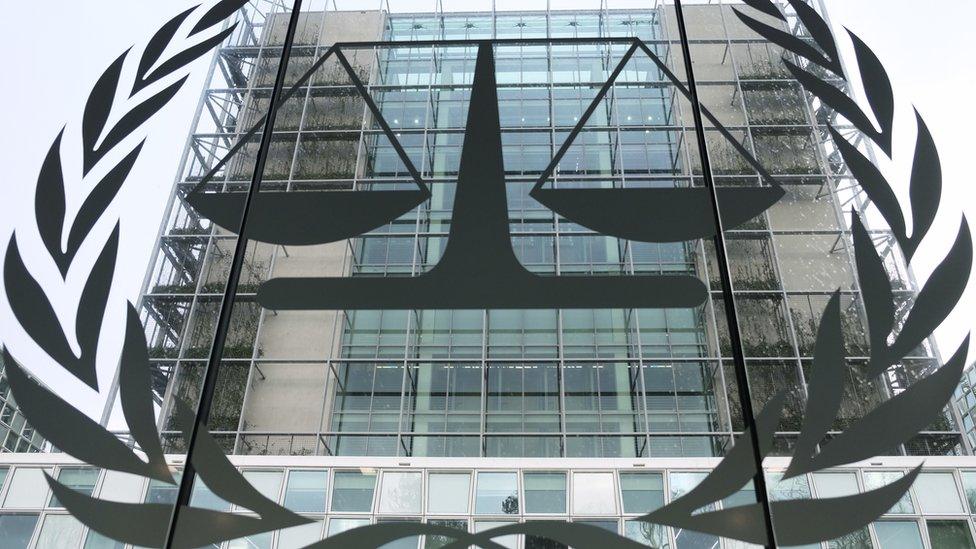
- Published24 October 2016
